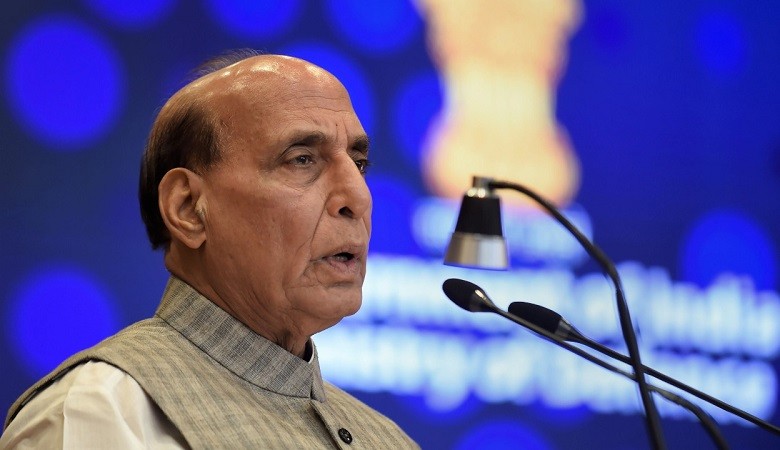
NEW DELHI: Defence Minister Rajnath Singh said here on Saturday that self-reliance and secured borders are central to making India a powerful nation.
Speaking at the inaugural session of the Conclave 2022 in New Delhi, defense minister Singh echoed the government's unwavering resolve to transform India into one of the most powerful nations by 2047, emphasizing that the defense Ministry is leaving no stone unturned to achieve PM Modi's vision of 'Aatmanirbhar Bharat'.
Singh emphasised the government's priority of providing the armed forces with state-of-the-art weapons and equipment manufactured by a self-reliant defence industry and outlined several efforts the defense ministry has taken to lessen reliance on imports, including the issue of positive indigenization lists. He asserted that India has the ability to produce advanced weapons and platforms by using the recently-commissioned INS Vikrant as an example, which has 76 percent indigenous content.
At one point, India exclusively exported defence products totaling Rs 1,900 crore. The amount has already surpassed Rs. 13,000 crore. By 2025, we aim to produce Rs 1.75 lakh crore in defence products, including Rs 35,000 crore in exports. We are on track to meet the goal, he declared.
Defence Minister Singh referred to the development of border areas as "another" element at the core of the Government's vision and stated that every effort is being made to improve connectivity with remote areas to further the Armed Forces' state of readiness and to connect the nation with those who live there.
He referred to the North-East as India's limb that was neglected for a very long period following independence. He claimed that because the North-East is essential to the nation's economic, social, political, and strategic development, it has been one of the government's primary emphasis areas from the start.
"The restoration of peace and prosperity in the North-Eastern states has been our greatest accomplishment in the last 8.5 years. Nearly all of the North-states East's have seen a decline in violent events of between 80 and 90 percent since 2014. The majority of the radical organisations have either been eliminated or have capitulated and assimilated. In 80 percent of the areas, the Armed Forces (Special Powers) Act has been repealed. As a result of the region's current state of peace, stability, and durability, this was made possible, the minister said.
Regarding the Indian economy, he said that it has grown stronger and more active. He noted that there are now 75,000 start-up businesses nationwide, up from just 400 in 2014. Due to their USD 1 billion valuation, more than 100 of these are referred to classified as "unicorns" globally, he said.
"The majority of nations today are dealing with the issue of a sluggish economy. The International Monetary Fund (IMF) forecasts that the global GDP would expand by 2.9 percent between 2022 and 2023. India's growth rate is still assessed at 6.1 percent, despite being understated. He said, the entire globe is watching India's rising story.